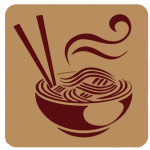 In comparison with Western drug treatments acupuncture has been found beneficial for a variety of gastrointestinal diseases: dyspepsia, gastritis, ulcerative colitis, reflux and other functional gastrointestinal disorders eg IBS which is characterised by pain, bloating, constipation and/or diarrhoea.
In comparison with Western drug treatments acupuncture has been found beneficial for a variety of gastrointestinal diseases: dyspepsia, gastritis, ulcerative colitis, reflux and other functional gastrointestinal disorders eg IBS which is characterised by pain, bloating, constipation and/or diarrhoea.
Acupuncture may help in the treatment
of GI disorders by:
- inhibiting gastric and duodenal motility by activating sympathetic nerves via spinal reflexes
- altering acid secretion, and visceral pain
- improving delayed gastric emptying
- reducing inflammation by promoting release of vascular and immunomodulatory factors
- stimulating areas in the brain that are involved in gastric perception
- inhibiting stress-induced pro-opiomelanocortin expression in the hypothalamus

10 Tips for healthy eating according to traditional chinese medicine:
In chinese medicine, although what we eat is very important, there is equal importance placed on how we eat, have a read below and digest these tips!
- Eat breakfast like a king, lunch like a prince and dinner like a pauper. Our digestive systems are at their strongest between 7 and 9am, and at their weakest between 7-9pm. As our digestive energy is at it’s peak first thing it makes sense for us to utilize this time as we will digest a big meal very efficiently, and gain energy from it so make time and have a big hearty breakfast.
- Avoid eating late at night, your metabolism is slowing down so your digestive system cant cope with a large meal. Eating big meals late in the evening will overburden your digestive system, possibly disturbing your sleep. The food will sit, undigested, in your system overnight and can make you feel like you dont have an appetite in the morning. Some individuals can also feel heavy, sluggish and slightly nauseous. In the long term it will deplete the digestive fluids and can cause digestive problems.
- Regular meal times. The stomach likes routine and regularity and will prepare for digestion if eating is regular. Missing meals will weaken the digestive fluids and snacking or eating late will create stagnation in the digestive system. A regular healthy diet also keeps blood sugar levels stable as diabetics are only too aware of.
- Just eat, if you are eating and doing something else eg eating a sandwich and working on the computer, some blood will be diverted away from the digestive system and sent to your brain instead, thus compromising digestion. The break down of food requires alot of energy, so to do the job properly it really is best to let your body digest without any distractions. Working and eating at the same time, eating on the go, TV dinners can all weaken your digestive system overtime, and are best avoided.
- Avoid eating when stressed, and try to stay relaxed while eating. If we are stressed, uptight or anxious at meal times, food will stagnate in your digestive system which can lead to heartburn or ulcers. After eating try not to rush around too as your body needs time and space to digest, so take it easy!
- Chew well and eat slowly to aid the digestive process. Eating rapidly and not chewing food properly will cause stagnation and lead to indigestion. In the long term your digestive system will be weakened.
- Avoid eating too much. The stomach takes a while to give the brain the message that it is full, therefore it is best to stop eating before you get totally full. Overburdening your digestive system will lead to stagnation in your digestive system.
- Only drink a small amount of fluid with a meal, drinking too much around meal times will water down the digestive juices that we need to digest food, thus causing digestive problems.
- Avoid eating too many cold foods, your digestive system needs a level of ‘heat’ to digest food, therefore
 avoid eating food straight from the fridge or having iced drinks with your meals. If the temperature of the food you eat is too cold, your stomach will first have to warm the food to 38 degrees before it can start to digest it. This uses up too much digestive energy. Avoid over-eating raw food, especially if you have weak digestion and instead eat lightly steamed or stir-fry vegetables to make them more digestible without losing valuable nutrients. Cooking soups and stews is a good way to retain more of the goodness from vegetables.
avoid eating food straight from the fridge or having iced drinks with your meals. If the temperature of the food you eat is too cold, your stomach will first have to warm the food to 38 degrees before it can start to digest it. This uses up too much digestive energy. Avoid over-eating raw food, especially if you have weak digestion and instead eat lightly steamed or stir-fry vegetables to make them more digestible without losing valuable nutrients. Cooking soups and stews is a good way to retain more of the goodness from vegetables.
- Cravings, if you experience sweet cravings it could be a sign that your digestive system is weak (or sometimes that hormones are out of balance). Eating foods which maintain a steady blood-sugar level eg oats or brown rice, will strengthen digestion. Cravings for salty food may mean you are low in minerals. Eat plenty of lightly cooked vegetables, and if you use salt in your cooking make sure that it is unbleached sea-salt. Many processed foods contain additives that confuse our bodies and make us crave the food (like monosodium glutamate/MSG). Often we crave for the very foods that are doing us harm, and we may need to eliminate this food entirely for a while
